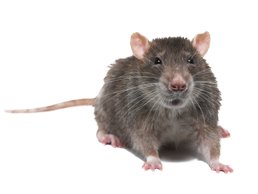
Baby Rats: A Comprehensive Guide to Care and Development
Introduction
Baby rats, also known as pups or kittens, are adorable and curious creatures that require specialized care and attention. Understanding their unique needs and providing them with the proper environment is crucial for their health and well-being. This comprehensive guide will delve into the fascinating world of baby rats, covering their development, care, and common health concerns.
Development of Baby Rats
Birth and Early Development:
- Baby rats are born hairless, blind, and deaf.
- They rely heavily on their mother for warmth, nourishment, and protection.
- Their eyes open around 14-16 days of age, and their hearing develops shortly after.
Growth and Weaning:
- Baby rats grow rapidly, doubling their weight within the first week.
- They begin to explore their surroundings and interact with their littermates.
- Weaning typically occurs between 3-4 weeks of age, when they start consuming solid food.
Socialization and Handling:
- Baby rats are highly social animals and require regular handling to become comfortable with humans.
- Gentle handling from a young age helps them develop a trusting and affectionate bond.
- Avoid excessive handling, as it can stress them out.
Care for Baby Rats
Housing:
- Provide a spacious cage with ample room for movement and exploration.
- Line the cage with soft bedding, such as shredded paper or fleece.
- Ensure the cage has a hideout for privacy and security.
Feeding:
- Baby rats require frequent feedings, especially during the first few weeks of life.
- Offer them a high-quality rat chow specifically formulated for their nutritional needs.
- Provide fresh water at all times.
Temperature and Humidity:
- Baby rats are sensitive to temperature fluctuations.
- Maintain a temperature of 75-80°F (24-27°C) in their cage.
- Ensure adequate ventilation to prevent excessive humidity.
Hygiene:
- Keep the cage clean by removing soiled bedding and feces daily.
- Clean the cage thoroughly with a pet-safe disinfectant once a week.
- Trim their nails regularly to prevent overgrowth.
Health Concerns
Respiratory Infections:
- Baby rats are susceptible to respiratory infections, especially in cold or drafty environments.
- Symptoms include sneezing, coughing, and labored breathing.
Diarrhea:
- Diarrhea can be caused by various factors, including stress, dietary changes, or infections.
- Prompt veterinary attention is necessary to prevent dehydration.
Skin Conditions:
- Baby rats may develop skin conditions, such as ringworm or mites.
- These conditions can cause itching, hair loss, and discomfort.
Tail Biting:
- Tail biting is a common problem in stressed or overcrowded rats.
- Provide ample space, enrichment, and socialization to prevent this behavior.
Prevention and Treatment
- Regular veterinary checkups are essential for early detection and treatment of health issues.
- Vaccinations can protect against common diseases.
- Provide a healthy diet, clean environment, and appropriate socialization to minimize health risks.
Conclusion
Baby rats are delightful and rewarding pets that bring joy and companionship to their owners. By understanding their unique needs and providing them with proper care, you can ensure their health, happiness, and well-being throughout their lives. Remember to handle them gently, provide a stimulating environment, and seek veterinary attention when necessary. With love and dedication, you can create a thriving and fulfilling life for your furry little friends.
